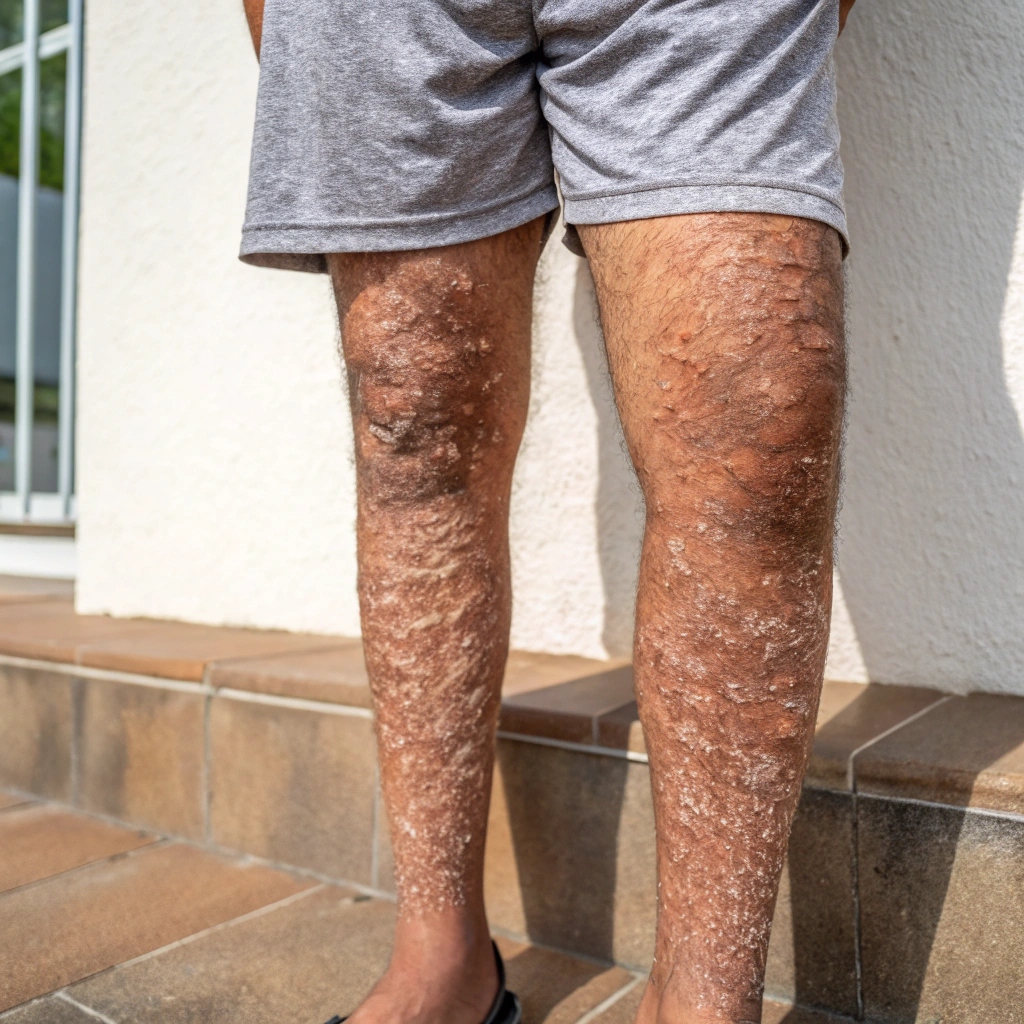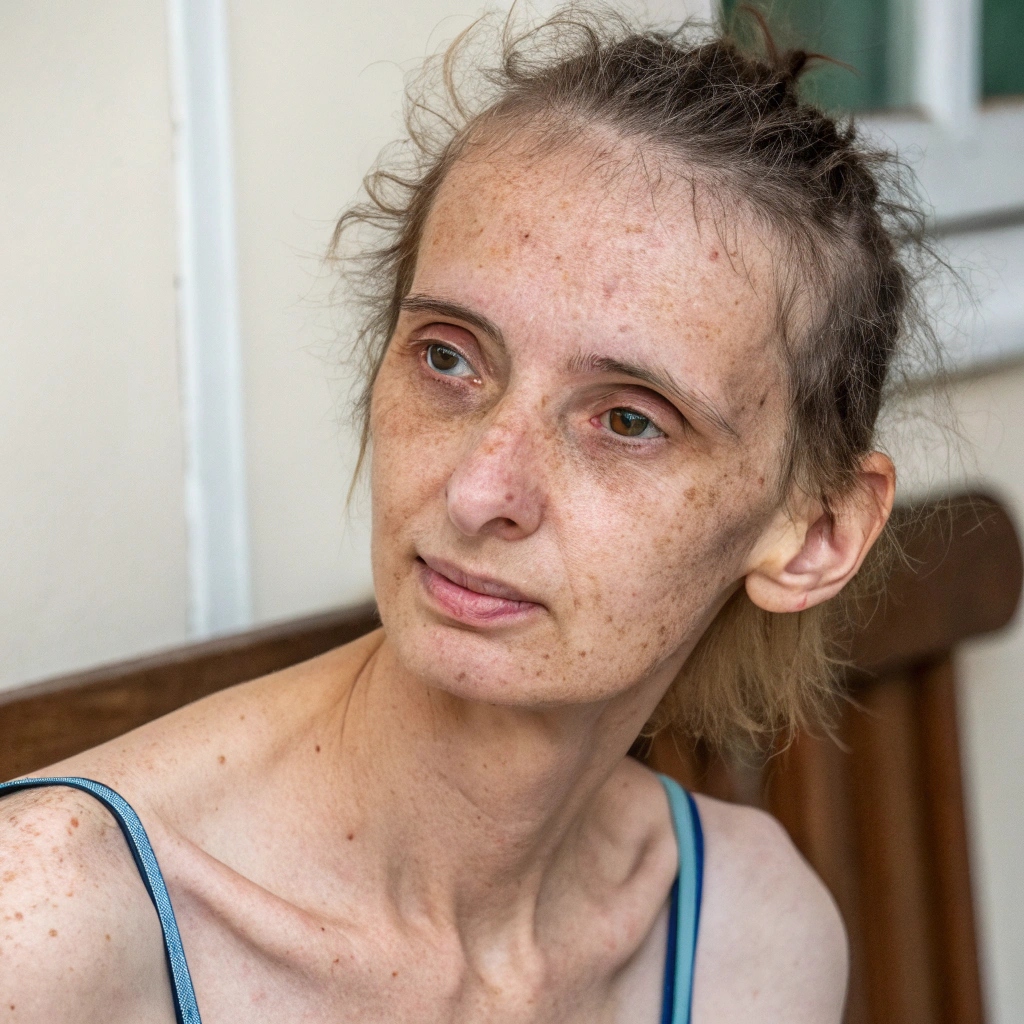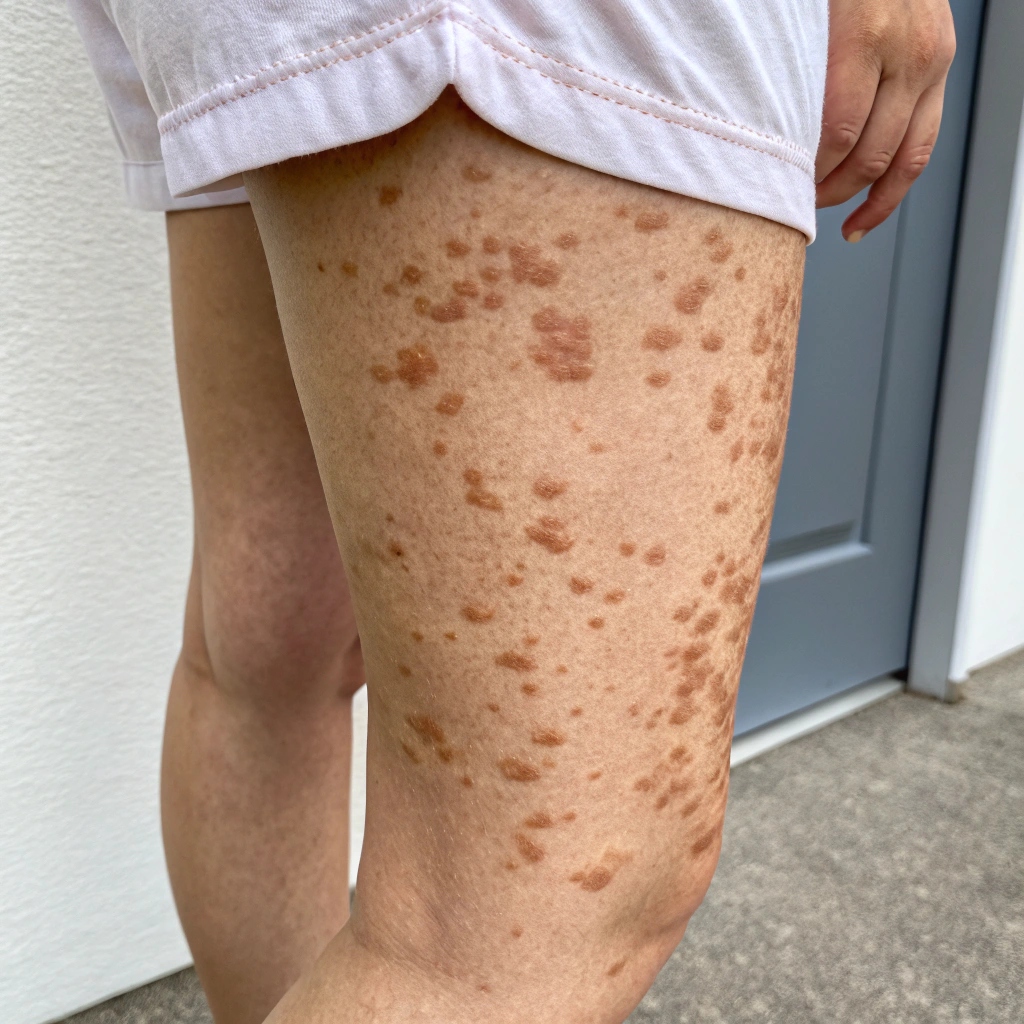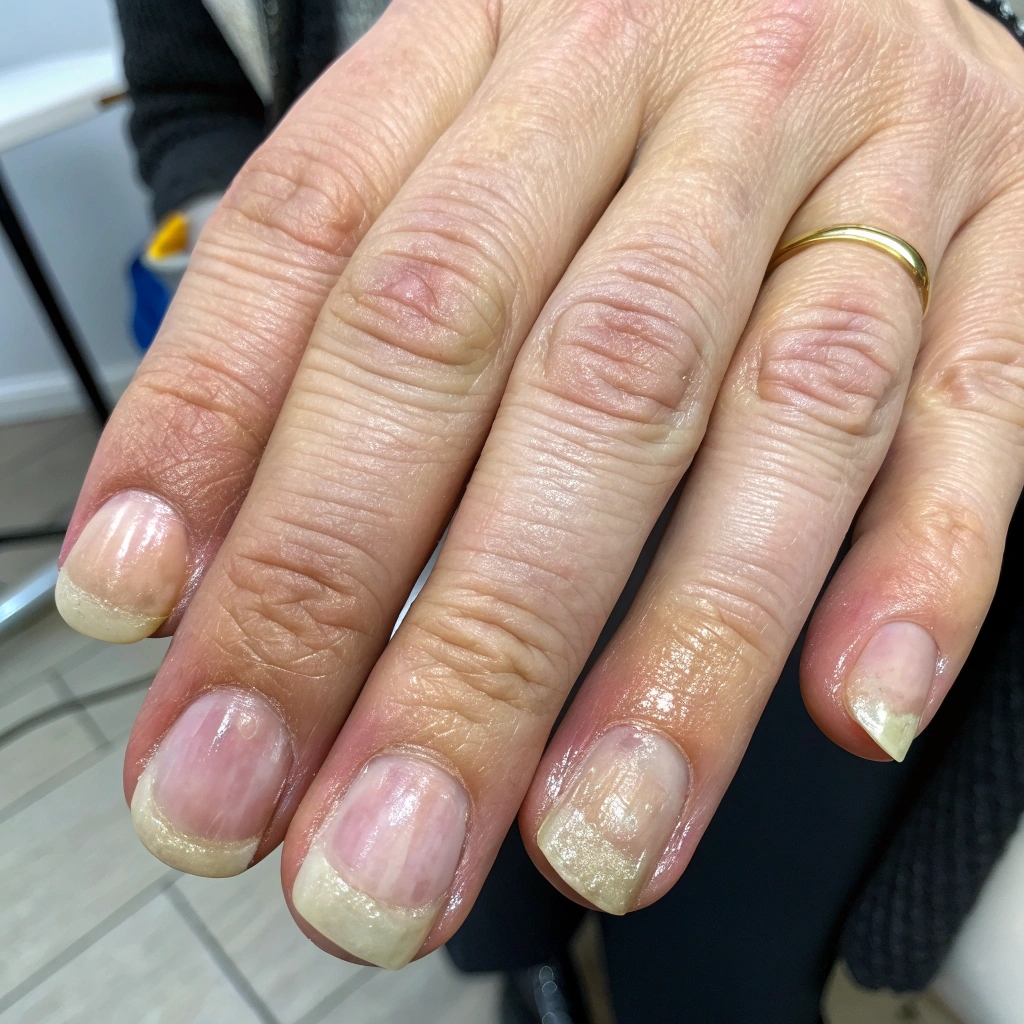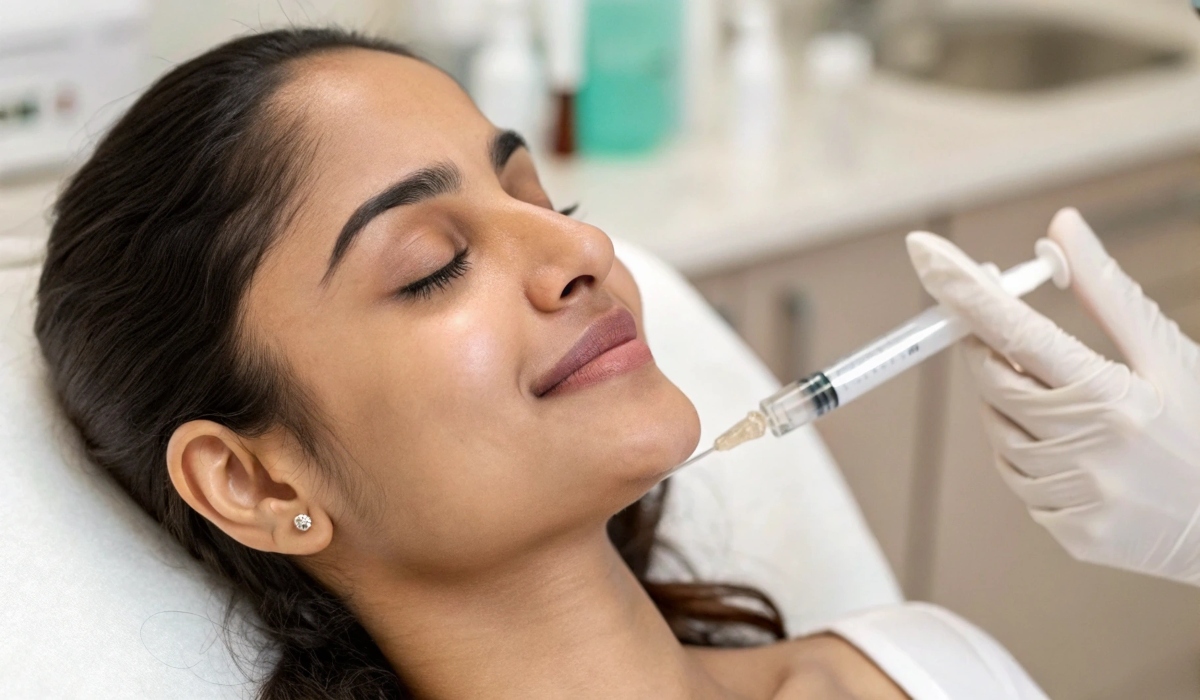
What Are Genetic Skin Issues and Why Do They Happen?
Genetic skin issues are skin conditions caused by changes in your genes, passed down from your parents. Think of your genes as a recipe book for your body. If there’s a typo in the recipe, it can change how your skin looks or works. These conditions can make your skin dry, scaly, red, or sensitive, and they often stick around for life. In a city like Lucknow, where heat, dust, and humidity are part of daily life, these issues can feel even harder to manage.
Your genes tell your skin how to build its protective barrier, produce oils, or repair itself. When there’s a genetic glitch, this barrier might not work right, letting irritants like dust or sweat sneak in. For example, in Lucknow’s busy streets like Hazratganj, dust can settle on your skin, making conditions like eczema or psoriasis worse. Genetic skin issues aren’t caused by something you did—they’re part of your DNA. But with the right care, you can manage them and feel confident in your skin.
Some common triggers that make genetic skin issues worse include:
- Environment:Lucknow’s humid summers and dusty air can irritate sensitive skin.
- Stress:Busy days, like rushing through Gomti Nagar traffic, can flare up conditions.
- Allergies: Foods like dairy or chemicals in soaps can make symptoms worse.
- Climate:Hot, sweaty days or dry winters can dry out or inflame your skin.
Understanding these conditions is the first step to finding the best dermatologist in Lucknow for treatment.
Types of Genetic Skin Issues: Know Your Condition
Genetic skin issues come in many forms, each with unique symptoms and challenges. Here’s a detailed look at some common ones:
- What it is:Ichthyosis, a condition causing dry, scaly skin that looks like fish scales.
- Appearance:Thick, rough patches, often on the arms, legs, or torso.
- Challenges in Lucknow:Dust and heat can make scaling worse, especially in summer.
- What it is:Epidermolysis Bullosa is a rare condition where the skin is very fragile and blisters easily.
- Appearance:Blisters or sores from minor bumps or friction.
- Challenges in Lucknow:Tight clothing or sweat can worsen blisters in humid weather.
- What it is:Ectodermal Dysplasias affects skin, hair, nails, and sweat glands due to gene changes.
- Appearance: Thin skin, sparse hair, or brittle nails.
- Challenges in Lucknow:Heat can be tough since sweating might not work well.
- What it is: Extreme sensitivity to sunlight, increasing skin cancer risk.
- Appearance: Freckles, burns, or rough patches after sun exposure.
- Challenges in Lucknow:The city’s strong sun makes sun protection critical.
- What it is:Atopic Dermatitis a common genetic condition causing itchy, red skin.
- Appearance:Red, inflamed patches, often on the face or elbows.
- Challenges in Lucknow:Humidity and dust can trigger flare-ups.
- What it is:Peeling Skin Syndrome is when skin peels off in sheets, often from birth.
- Appearance:Red, peeling skin, especially on hands or feet.
- Challenges in Lucknow: Dry winters can make peeling more noticeable.
- What it is:Incontinentia Pigmenti affects skin, hair, and sometimes nerves, mostly in females.
- Appearance: Blisters, then warty patches, and later swirled pigmentation.
- Challenges in Lucknow:Humidity can irritate early blister stages.
- What it is: Palmoplantar Keratoderma thickened skin on palms and soles.
- Appearance: Hard, thick patches on hands or feet, sometimes painful.
- Challenges in Lucknow:Walking in dusty areas can worsen cracking.
- What it is:Pachyonychia Congenita affects nails, skin, and sometimes hair.
- Appearance:Thick nails, painful calluses, or blisters on feet.
- Challenges in Lucknow:Tight shoes in humid weather can cause discomfort.
Each condition needs a unique plan, and a top dermatologist for genetic skin issues in Lucknow like Dr. Pragati can help figure out what’s best for you.
Why Genetic Skin Issues Are Tougher in Lucknow
Lucknow’s climate and lifestyle can make genetic skin issues harder to manage. The city’s humid summers make you sweat, which can irritate conditions like epidermolysis bullosa or eczema. Dust from busy areas like Aminabad or Aliganj sticks to your skin, clogging pores or worsening scaling in ichthyosis. Hard water, common in some Lucknow homes, can dry out your skin, making conditions like psoriasis or peeling skin syndrome more noticeable.
Cultural habits also play a role. For instance, wearing heavy makeup during traditional Lucknow weddings or indulging in rich, oily foods can trigger flare-ups for certain skin conditions. Even the daily stress of city life—whether from work pressure or navigating traffic—can take a toll on your skin. A dermatologist like Dr. Pragati understands these local lifestyle challenges and offers tailored treatment plans to address them effectively.
Top Treatment Options for Genetic Skin Issues in Lucknow
Managing genetic skin issues requires expert care tailored to your condition. Here are the best treatments available in Lucknow, offered by specialists like Dr. Pragati, the best dermatologist in Lucknow for genetic skin issues treatment.
Moisturizing Therapies: Hydrating Your Skin
Think of your skin like a garden that needs constant watering. Genetic conditions like ichthyosis or eczema make your skin dry out fast. Moisturizing therapies use thick creams or ointments to lock in water. Dr. Pragati might suggest:
- Customized creams:Chosen for your specific condition, like heavy ointments for ichthyosis.
- Application tips:Apply after bathing to trap moisture.
- Cost:A consultation for a moisturizing plan costs around ₹500 to ₹1,500.
Topical Treatments: Soothing Symptoms
Topical treatments are like a cooling balm for your skin. They reduce redness, itching, or scaling in conditions like psoriasis or eczema. A dermatologist might recommend:
- Non-steroidal options: To calm inflammation safely.
- Personalized plans: Based on your skin’s severity and type.
- Cost: Consultation plus a treatment plan typically costs ₹1,000 to ₹2,500.
Phototherapy: Light-Based Healing
Phototherapy uses special UV light to help conditions like psoriasis or eczema. It’s like giving your skin a controlled dose of sunlight to calm it down. In Lucknow, clinics offer:
- Narrowband UVB: Targets affected areas to reduce scaling or itching.
- Sessions: You might need 2-3 sessions a week for 1-3 months.
- Cost: Each session costs ₹2,000 to ₹5,000, depending on the clinic.
For xeroderma pigmentosum, phototherapy is avoided due to sun sensitivity, and dermatologists focus on other options.
Wet Wrap Therapy: A Soothing Wrap
Wet wrap therapy is like wrapping your skin in a damp, comforting blanket. After applying a moisturizer or prescribed cream, wet bandages are used to lock in the treatment. It’s great for eczema or incontinentia pigmenti. Dr. Pragati might suggest:
- Home or clinic use: Learn to do it at home with guidance.
- Benefits: Reduces itching and speeds healing.
- Cost: Clinic sessions cost ₹1,500 to ₹3,000 per visit.
Advanced Treatments: For Severe Cases
For tough conditions like epidermolysis bullosa or pachyonychia congenita, advanced options might include:
- Biologics: Injections to target specific immune responses (not medicines, but specialized treatments).
- Wound care: For blistering conditions like EB, to prevent infections.
- Cost: These treatments can cost ₹10,000 to ₹20,000 per session.
Choosing the Best Dermatologist in Lucknow for Genetic Skin Issues
Finding the right dermatologist is like picking the perfect Lucknowi kurta—it needs to fit you perfectly. Dr. Pragati is known as the best dermatologist in Lucknow for genetic skin issues treatment because of her expertise and personalized care. Here’s what to look for:
- Experience: At least 10-15 years in dermatology, especially with genetic conditions.
- Technology: Clinics with tools like phototherapy machines or advanced diagnostics.
- Location : Gomti Nagar or Indira Nagar are convenient for most residents.
- Personalization : A dermatologist who listens and creates a custom plan.
Book a consultation to see the clinic and meet the dermatologist. Dr. Pragati’s approach makes you feel confident and supported.
Lifestyle Changes to Support Treatment
Professional treatments work better when you make small changes at home. Here’s how to help your skin in Lucknow’s environment:
Diet: Nourish Your Skin
What you eat can affect genetic skin issues. In Lucknow, tempting foods or spicy foods might trigger flare-ups for conditions like eczema or psoriasis. Try these:
- Eat skin-friendly foods: Include veggies like lauki (bottle gourd) or fruits like papaya for vitamins.
- Avoid triggers:Dairy, nuts, or spicy foods can worsen some conditions.
- Stay hydrated: Drink 8-10 glasses of water daily to combat Lucknow’s heat.
Skincare Routine: Keep It Gentle
A simple skincare routine is like daily maintenance for your skin. For genetic conditions, it’s crucial:
- Use mild cleansers:Fragrance-free options to avoid irritation.
- Moisturize often:Apply thick creams after bathing, especially for ichthyosis or peeling skin syndrome.
- Sunscreen:SPF 50 for conditions like xeroderma pigmentosum to protect against Lucknow’s sun.
Avoid touching your skin after eating street food like chaat, as oils can irritate conditions like eczema.
Clothing: Let Your Skin Breathe
Lucknow’s humidity can make tight clothes a problem for conditions like epidermolysis bullosa or pachyonychia congenita. Think of your skin as needing room to relax:
- Wear cotton:Loose kurtas or salwars reduce friction.
- Avoid synthetics:They trap sweat, worsening blisters or scaling.
- Wash new clothes:Remove chemicals that might irritate your skin.
Stress Management: Calm Your Mind
Stress can make genetic skin issues worse, like adding fuel to a fire. In Lucknow’s fast-paced life—whether you’re preparing for a wedding or stuck in traffic—stress can trigger flare-ups. Try:
- Meditation: 10 minutes daily to relax your mind.
- Walks:Stroll in Ambedkar Park to unwind.
- Hobbies:Listening to qawwali or gardening can lower stress.
Sleep: Your Skin’s Repair Time
Sleep is like a nightly spa for your skin. Lack of sleep can worsen conditions like psoriasis or eczema by stressing your body. Aim for:
- 7-8 hours of sleep:Helps your skin heal.
- Clean bedding:Wash sheets weekly to avoid dust buildup
- Cool environment:Keep your room cool to prevent sweating.
Safety Precautions and Common Mistakes to Avoid
Treating genetic skin issues is safe with professional guidance, but mistakes can worsen symptoms. Here’s what to avoid:
- Don’t scratch: Scratching eczema or psoriasis can cause infections or scars.
- Avoid harsh products: Soaps with fragrances can irritate conditions like ectodermal dysplasias.
- Patch test new treatments: Try a small area first to check for reactions.
- Protect from sun: Especially for xeroderma pigmentosum, always use sunscreen and hats in Lucknow’s sun.
Always consult a dermatologist before trying new treatments. Dr. Pragati ensures safe, tailored care for your condition.
Why Lucknow Is Ideal for Genetic Skin Issues Treatment
Lucknow’s healthcare scene is growing, with clinics offering advanced tools like phototherapy and wound care for genetic conditions. Dermatologists like Dr. Pragati combine global expertise with an understanding of local challenges, like Lucknow’s dust and humidity. Whether you’re in Aliganj, Gomti Nagar, or Hazratganj, expert care is nearby.
The city’s Awadhi culture values appearance, especially for events like Eid or weddings. Healthy skin boosts your confidence, and Lucknow’s clinics make high-quality care accessible.
Practical Tips for Maintaining Results
After starting treatment, keep your skin healthy with these tips:
- Follow your plan: Stick to your dermatologist’s advice, like daily moisturizing or phototherapy sessions.
- Avoid DIY remedies: Homemade pastes like haldi might irritate conditions like peeling skin syndrome.
- Regular check-ins: Visit your dermatologist every few months to adjust your plan.
Dr. Pragati compares skincare to brewing Lucknowi chai—it takes care and consistency to get it right.
Genetic Skin Issues and Mental Health
Genetic skin issues can affect more than your skin—they can impact how you feel. In Lucknow, where social events like festivals or family gatherings are important, visible conditions like psoriasis or argyria might make you feel self-conscious. Research shows these conditions can lead to anxiety or low confidence, especially in teens. Combining dermatology with self-care like journaling or talking to a friend can help. Dr. Pragati supports patients emotionally, ensuring they feel understood.
Practical Applications: A Sample Skincare Routine
Here’s a sample daily routine for managing genetic skin issues in Lucknow, tailored to conditions like eczema or ichthyosis:
- Morning:
- Cleanse with a fragrance-free cleanser (5 minutes).
- Apply a thick moisturizer to lock in hydration.
- Use SPF 50 sunscreen for sun-sensitive conditions like xeroderma pigmentosum.
- Afternoon:
- Reapply moisturizer if your skin feels dry, especially after sweating.
- Wear loose cotton clothing to avoid irritation.
- Evening:
- Shower with lukewarm water to remove dust or sweat.
- Apply a heavy ointment for conditions like palmoplantar keratoderma.
- Use wet wraps if recommended by your dermatologist.
This routine, guided by Dr. Pragati, can help keep symptoms under control.
Living with Genetic Skin Issues in Lucknow
Living with genetic skin issues in Lucknow means adapting to the city’s unique environment and culture:
- Monsoon season: High humidity can worsen eczema or epidermolysis bullosa. Shower after sweating and moisturize well.
- Festivals: During Holi, avoid chemical colors that can irritate peeling skin syndrome or incontinentia pigmenti.
- Daily life: Dust from markets like Aminabad can cling to your skin. Cleanse gently to avoid flare-ups.
Dr. Pragati helps patients create plans that fit into Lucknow’s lifestyle, from daily routines to special occasions.
Frequently Asked Questions
Costs vary by condition and treatment. Consultations cost ₹500 to ₹1,500, while phototherapy sessions range from ₹2,000 to ₹5,000. Advanced treatments like biologics may cost ₹10,000 or more per session.
Dr. Pragati is widely regarded as the best dermatologist in Lucknow for genetic skin issues treatment, offering personalized and expert care.
Most genetic skin issues are lifelong, but with proper treatment, symptoms can be managed effectively. A dermatologist can create a long-term plan.
Results vary. Moisturizing and topical treatments may show improvement in weeks, while phototherapy might take 1-3 months for noticeable changes.
Yes, with professional guidance. Dr. Pragati uses patch tests and customized plans to ensure safety for conditions like epidermolysis bullosa.
